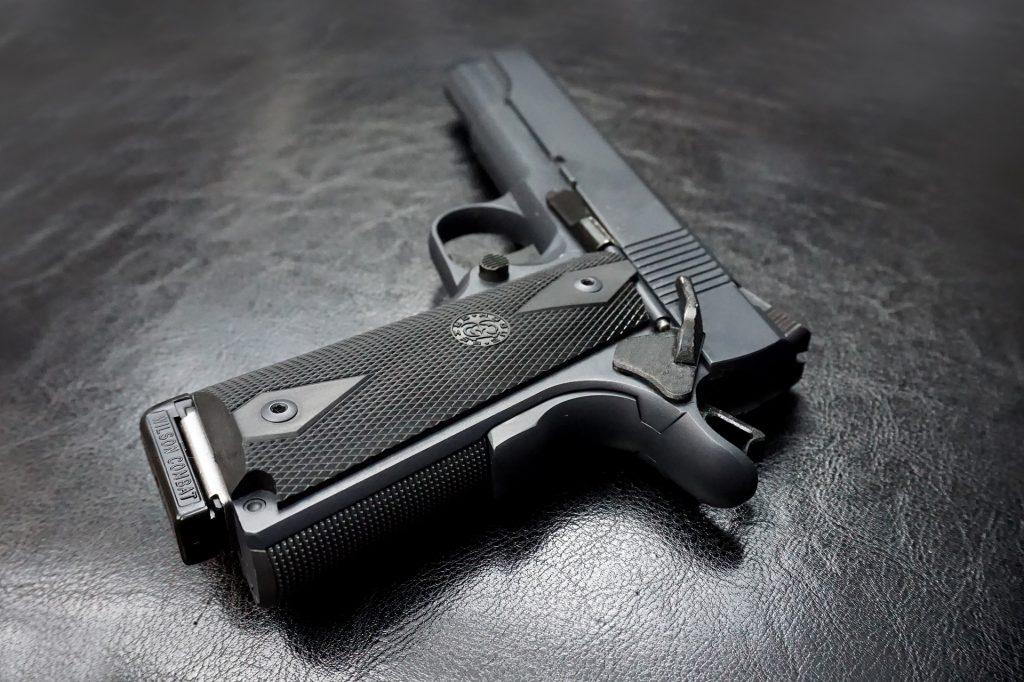The Legacy of Concealed Carry in Wisconsin
10 years after the first concealed carry permit was issued, one in eight adults over 21 now have one.
Wisconsin’s law allowing the carrying of concealed weapons (CCW) has its 10-year anniversary Nov. 1, and it’s become part of Wisconsin’s culture. Although shootings are increasing in urban areas, no study has linked those shootings to the CCW law.
A significant number of Wisconsin residents now have CCW licenses:
*Almost one in eight of those age 21 or older had CCW permits as of Sept. 27, according to the Wisconsin Department of Justice, which issues the permits. On that date, there were 458,630 CCW licenses.
*The number of new applications for CCW licenses doubled last year – going from 32,714 in 2019 to 77,472 in 2020 – although no one knows how much of that increase can be traced to fears or anxiety resulting from the Covid-19 pandemic.
*The total number of CCW licenses issued last year was 101,549, the second highest number since the law was passed. That total included 31,322 residents who renewed their licenses.
Neither Gov. Tony Evers, whose call for a special session of the Legislature to act on gun-control measures was ignored, nor Atty. Gen. Josh Kaul responded to requests for comment about the impact of the CCW law 10 years later.
The CCW law gives a five-year license to someone who pays a $40 fee, has completed firearms training, is not prohibited from possessing a firearm under federal or state law and is not prohibited by a court order from possessing a firearm.
The first CCW permit was issued on Nov. 1, 2011, to then-Republican Atty. Gen. J.B. Van Hollen. The law prohibits the disclosure of the names of those who have CCW permits.
Jim Palmer, executive director of the Wisconsin Professional Police Association, said the “vast majority” of individuals who confront officers are increasingly doing so with a weapon “and that wasn’t always the case.”
It’s an “alarming trend,” Palmer said.
WPPA has tracked, and publicly reported, data on officer-involved shootings for 10 years.
“When we first began doing so, there seemed to be a 55/45 split between those armed with firearms, as opposed to knives,” Palmer said. “In each of the last several years, however, the proportion of individuals confronting officers with firearms has increased significantly.”
WPPA’s statistics:
“Individuals armed with firearms confronted officers in 15 of the 19 officer-involved shootings that occurred in 2020. That’s nearly 79%.
“This year, officers in Wisconsin were confronted by individuals armed with firearms in 12 of the 14 officer-involved shootings that have transpired thus far. That’s almost 86%.
“That’s the general trend that officers are seeing, and it should concern all of us. While that should not be interpreted to suggest that the CCW law is responsible for this, I think one can reasonably draw a correlation that more guns in our communities create a dangerous ripple effect that impacts our officers.”
One 68-year-old Madison homeowner explained why he got a CCW license in January 2020, before the COVID-19 pandemic changed individuals’ lifestyles.
“Changing crime rates and federal/state/local government policies have allowed ‘peaceful protests’ to be destructive and violent. And, policies have shackled law enforcement. I felt that I could not rely on our law enforcement officers to protect myself, my [wife] and my home.
“As a senior citizen,” he added “I realize that I am not going to outrun an assailant, not best one in a physical fight and – lastly – not be able to recover well from being mugged. It is my last line of defense for myself, my loved ones and my home.”
Steven Walters started covering the Capitol in 1988. Contact him at stevenscotwalters@gmail.com
The State of Politics
-
RNC Brings Fame to Gen Z Party Leader
 Jul 15th, 2024 by Steven Walters
Jul 15th, 2024 by Steven Walters
-
Wisconsin’s Republican Roots Run Deep
 Jul 8th, 2024 by Steven Walters
Jul 8th, 2024 by Steven Walters
-
Feuding Supreme Court Justices Need a Break
 Jul 1st, 2024 by Steven Walters
Jul 1st, 2024 by Steven Walters























Seems a bit odd that after an officer shooting of a citizen possessing a firearm, that the investigation does not include a basic detail re that citizen having a permit. Wouldn’t it be material to either the prosecution /defense of the case?
it also seems that this would be 1 of the many statistics tracked relating to firearms by the various govt. organizations.
“Palmer also said there is no data on whether individuals who confront officers with guns have valid CCW permits.”